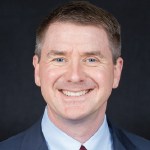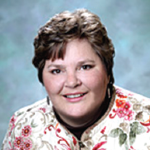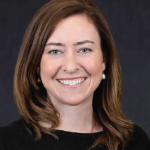
Q STOCK / shutterstock.com
At the Johns Hopkins School of Medicine Division of Rheumatology, Baltimore, registered nurses (RNs) are an integral aspect of the rheumatology fellowship program. This gives the fellows information and insight into areas of practice they might not otherwise receive.
“This [practice] is a result of our very strong belief that an integrated and interdisciplinary approach, including the participation of nurses, is critical to provide the best care for patients with rheumatic disease,” says Clifton Bingham, MD, director of the Johns Hopkins Arthritis Center. “The RNs play a critical role in educating patients about their diseases and instructing them on treatment options and their various risks and benefits.”
Dr. Bingham says medical training is traditionally centered on what physicians can assess through clinical evaluations and less so on more difficult to measure factors and health-related quality of life. Yet these other inputs are important in terms of how patients feel, function and survive.
“The nursing perspective is very different from the physician’s; nursing looks more at how interactions take place with patients and what the patients see as important,” says Victoria Ruffing, RN-BC, director of patient education at Johns Hopkins and one of the lecturers in the program. “What are the unique barriers a particular patient faces that might impede adherence to a particular regimen? What are the psychosocial factors, environmental influences and family support issues that influence a patient’s decisions?”
The RNs’ interaction with fellows begins in orientation and continues throughout the year. The topics nurses address are varied, covering issues of patient teaching, medication administration and certain kinds of patient-specific paperwork.
Hands-On Training

Dr. Bingham
The nurses deliver hands-on training in aspects of treatment to which physicians are not normally exposed. For example, nurses are a fount of information on how biologic medicines work and possible drug interactions, how to counsel patients on injection techniques, possible reactions and how patients should respond to adverse events.
Another perspective that nursing provides is in the area of interactions with patients and what they see as important. Often, physicians are not well trained in assessing and addressing areas of a patient’s life, such as their personal beliefs, and then integrating care into the patient’s individual environment and circumstances.
“Interacting with the nurses gives us a better understanding of the application of what we learn to where the rubber meets the road,” says Jason Liebowitz, MD, a graduate of the rheumatology fellowship program at Johns Hopkins and now a practicing rheumatologist in New Jersey. “It helps us put into process many of the important parts of medical management that you really can’t get just by reading textbooks or attending lectures.”
With regard to biologics, nurses are often more knowledgeable than physicians about the action, side effects and what is important to teach the patients about these drugs.
Patient Perspective

Ms. Ruffing
“We focus on the important aspects from a patient’s perspective,” says Ms. Ruffing. “It is helpful to talk to fellows about how you put this information into a language that patients are able to understand.”
Dr. Bingham agrees and notes that is a driving force within the Johns Hopkins fellowship program. “Not all rheumatologists can access or have a nurse in their practice after completion of their training,” he says. “Learning the strategies and the ways nursing approaches a patient can actually be quite important in terms of integrating their own skills into the practice if they don’t have an RN.”
How to find assistive devices and how to properly fill out the forms needed to get payment assistance from pharmacy companies or qualify for disability are just a couple of the topics addressed by nurses in the fellowship program.
Ms. Ruffing and her colleagues teach three lectures a year. She is also available at any time for discussions with the fellows. The fellows are encouraged to observe interactions and patient-teaching discussions.
Fellows Say RNs Improve Their Experience
“The nurses as a resource absolutely improved learning, discussing hands-on topics that aren’t always found in a book or the clinic,” says Dana DiRenzo, MD, MHS, an instructor at Johns Hopkins and a recent fellow. “I had a patient who was on vacation call me because they had frozen their [adalimumab] and did not know what to do. I would never have known how to answer that question without the RN exposure.”
Paperwork is an important aspect of rheumatology practice that RNs can complete, but physicians still need to be exposed to.
“We touch on many day-to-day issues that RNs often do, but physicians are sometimes thrown into,” says Ms. Ruffing, “things like writing appeal letters when your patient is denied a needed medication or completing disability or long-term insurance forms, for example.”
Health Literacy Concerns
 “One of the things I hope the fellows are taking away is how to recognize concerns around health literacy,” says Ms. Ruffing. “What I hope to impart is a recognition that the patients often don’t understand what is being said even after being told the same thing many times. It hasn’t been explained to them in terms they can understand.”
“One of the things I hope the fellows are taking away is how to recognize concerns around health literacy,” says Ms. Ruffing. “What I hope to impart is a recognition that the patients often don’t understand what is being said even after being told the same thing many times. It hasn’t been explained to them in terms they can understand.”
She points to the administration of methotrexate. It is given only once a week, which to many patients is counterintuitive—especially when they are to take multiple pills at one time.
“How you talk to a patient about that is going to make a difference,” says Ms. Ruffing. “You ask them what day they think is the best for them to take all six of these pills.” The idea that you’re supposed to take six pills on one day, not one pill a day six times a week needs to be explained clearly, and the patient needs to be able to reiterate that information to ensure understanding.
Nurses model patient education techniques, adding a new understanding of what the person in front of the doctors needs to know about their disease, medications, treatments and changes in regimen. And the fellows learn how best to communicate that information to patients.
The Health Literacy Act requires all materials for patient use be understandable to lay people with a less-than-college education. “Our nurses do a very good job of putting these kinds of communications in terms patients at all education levels understand,” says Dr. Bingham. “They are helpful in instructing our fellows on how to relay information in words the patient can understand more fully.”
Take-Aways

Dr. DiRenzo
The fellows say that having nurses involved in the fellowship program gives them confidence in their own abilities to successfully work with patients if a nurse is unavailable.
“When I am on my own, I feel much more comfortable now discussing the application and use of medications—that will follow me throughout my career,” notes Dr. Liebowitz. “I have not only learned actual content to share, but also an effective way to approach patients and how to include them in discussions about treatment issues.”
Dr. DiRenzo agrees and adds that this exposure has absolutely added to her learning experience.
“This program improved the fellowship experience by giving us a real-world perspective,” she says. “You can go to the RNs for advice on things MDs may not have as much patient-centered experience with. I would have never received that training if they had not been a part of practice.”
“The fellows come away with a better understanding of how to use nurses to the greatest extent possible,” says Dr. Bingham. “RNs bring unique perspectives that further our patient-centered programs. This leads to improving adherence to medications and regimens, and ultimately improving outcomes.”
Trainees also gain an understanding of critical skills required in clinical practice that are not otherwise covered in the curriculum.
Bottom Line
“Obviously, not all fellows will stay in academics or other areas where they will have nurses available, so they need to know more about what we do,” says Ms. Ruffing. “Many fellows recognize the value of nurses through this interaction and plan to incorporate a nurse into their private practices.”
For those fellows going into practices that have a nursing staff, the program has given them insight into how to best use this resource. Others have been prompted to add nursing to their practices following graduation.
“I feel like the old model of a physician working by themselves, isolated from the patient, is no longer viable,” says Dr. Liebowitz. “Now, there is more understanding that we all have to work in teams. I think that having nursing as part of the team in the early stages of my career illustrates and confirms the importance.”
“An educated patient who feels an equal in the decision-making process is going to be a more adherent one,” says Ms. Ruffing. “Not all rheumatologists come out really understanding how to discuss things with patients. Patient education is the nurse’s corner, and it is something the fellows are most eager to learn.”
Kurt Ullman is a freelance writer based in Indiana.


